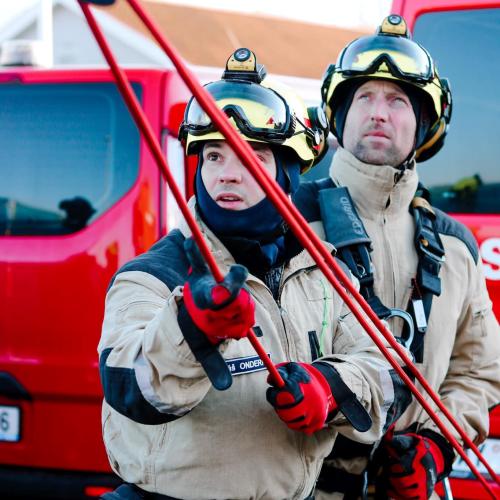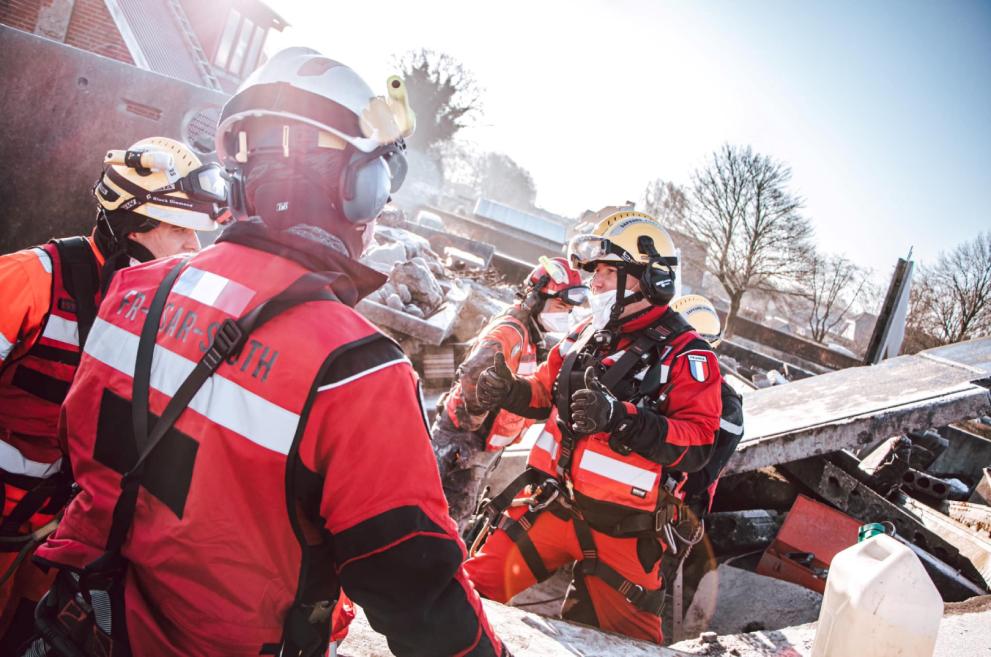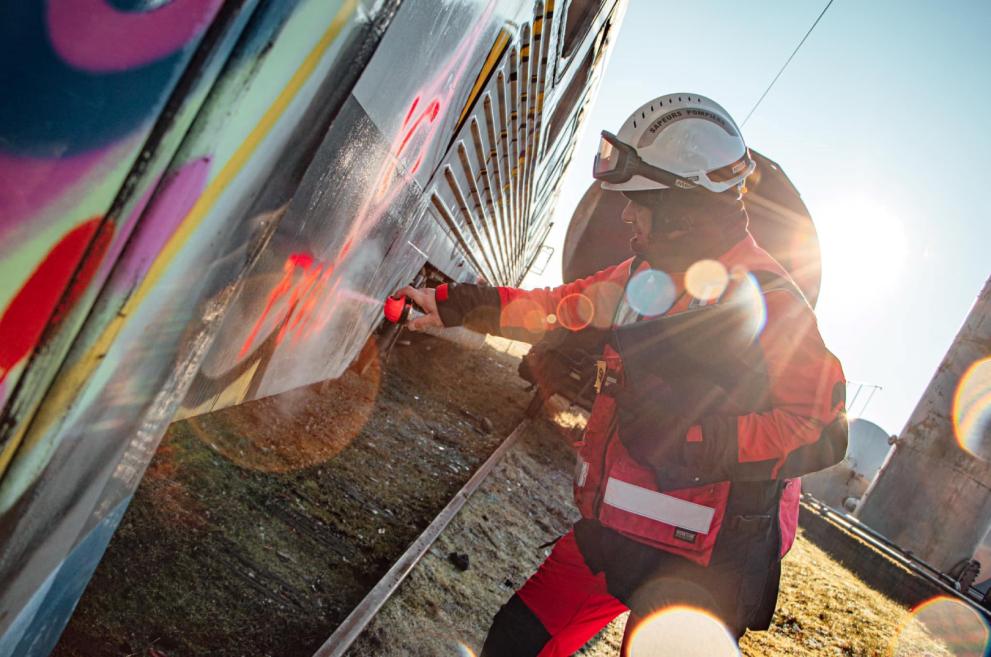
EU MODEX Urban Search & Rescue exercise in Tinglev
A very successful Urban Search and Rescue exercise took place in Tinglev (Denmark) from 19 to 23 January.

“What's extraordinary about EU MODEX is that the uniforms, the languages, the faces might change, but what you are breathing every time is the human energy, everyone as one, sharing a common objective: helping and rescuing people”.
These words well reflect the spirit during the Urban Search and Rescue EU MODEX in Tinglev (Denmark), which took place from 19 to 23 January. 146 participants coming from four countries exercised together under extreme weather conditions to test and practice their preparedness and response capacity and improve their interoperability to be ready when a real disaster and UCPM deployment occurs. For the modules /other response capacities and experts, EU MODEX is the last step before going on a deployment, but the experience goes beyond a “simulation”, it is as realistic as a mission. In the words of Chief exercise controller Steve Gadson: “We are in mission mode and mood, we need to keep that at the forefront of our mind. It’s all about the participants, it needs to be useful to them, they have to come out after these days safer and better”.
The exercise gathered the French heavy USAR FRA-10 module, with 70 persons and their search dogs, the Czech CZERT Medium USAR team, with 36 people and five dogs, the Italian STC VVF1 Capacity, a short term countermeasures capacity with 18 people, and the Azeri AZE-USAR 01 skeleton team with seven persons, each with their expertise, added value and learning objectives.
Based on the scenario of an earthquake of magnitude 7.2 RS with epicentre located in Aabenraa, these teams worked tirelessly 24/7 over two days to rescue many victims, provide advice on the structural safety of private homes and public buildings and protect cultural heritage. The venue at the Danish Emergency Management Agency (DEMA), Emergency Services College is known in Europe for its perfect working sites that were constructed to reflect the real after earthquake landscape.

DEMA venue staff and safety and security officers supported the exercise conduct and made the scenario even more authentic. To increase realism they also included additional elements such as cultural heritage artefacts, disabilities among victims, CBRN threats. Participants said that the result was great, as realistic as possible, “identical to the real thing”.
And the same goes for the scenario. There were several daily briefings, and two so called “time jumps” to ensure that all phases of the intervention cycle where covered, including dismantlement, donations and handover. Aftershocks and injects put further pressure on the teams and confront them with as many challenging situations as possible. It was not only about testing process, the equipment or the use of ICMS, it was also about diplomatic, negotiation, communication and intercultural skills. Besides clearing away the rubble, cutting walls, searching for victims, rescuing them and offering first aid and health assistance, participants had to welcome VIPs including the “German ambassador”, the “European Commission” and the “Chief of the Danish police” at the base of operation camp, showing them the USAR coordination cell, deal with internally displaced people demonstrating and communicate to the local media. Thanks to the information flowing in and realistic role-players behaviour, participants were confronted and dealt successfully with problems of strategic, political, cultural, logistical and technical nature.
“EU MODEX is considered as the last phase before going on a mission, so the teams should benefit during this experience from elements that they cannot get at home. There are three golden areas: the scale of the exercise compared to what they are used to at home, the complexity including the effort of collocating, travelling etc., and the timescale which is around one week instead of the ordinary day or half a day”.
The exercise management team and the coach/trainers worked day and night to give participants the best learning opportunity. Coach/trainers wear multiple hats; observing participants throughout the exercise, coaching and making suggestions, and stepping in and intervening whenever needed. The role of a coach/trainer has evolved from being a focal point for a specific team to being a ‘functional role’, with them assisting a particular element of the exercise. In Tinglev for the first time in Lot 3 exercises there was the following structure of tasks allocation among coach/trainers: two trainers specifically assigned for management, two for logistics and four responsible for operations. This system proved to work very well. They had perfect opportunities to capture all aspects of the operations and at the same time do shifts and complement each other’s feedback. They made sure together with all the other organisers that participants left their best in Tinglev and gave their best to their teammates and other teams and in return got added value through this experience of unparalleled scale, complexity and timescale.

“The EU MODEX in Tinglev has been a great opportunity for teams to exercise in areas that they can’t do at home, such as interoperability and cooperation with other capacities and reading the situation and environment. These exercises continually demonstrate the strength of the EU Civil Protection Mechanism and the positive impact it has on people in their greatest need.”

The Knowledge Network editorial team is here to share the news and stories of the Knowledge Network community. We'd love to hear your news, events and personal stories about your life in civil protection and disaster risk management. If you've got a story to share, please contact us.